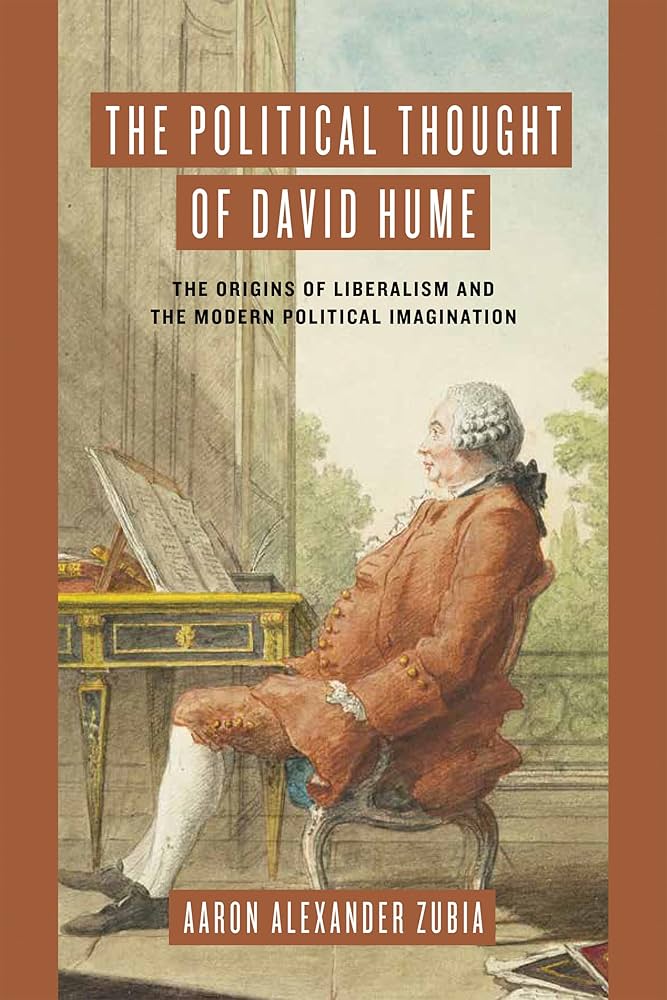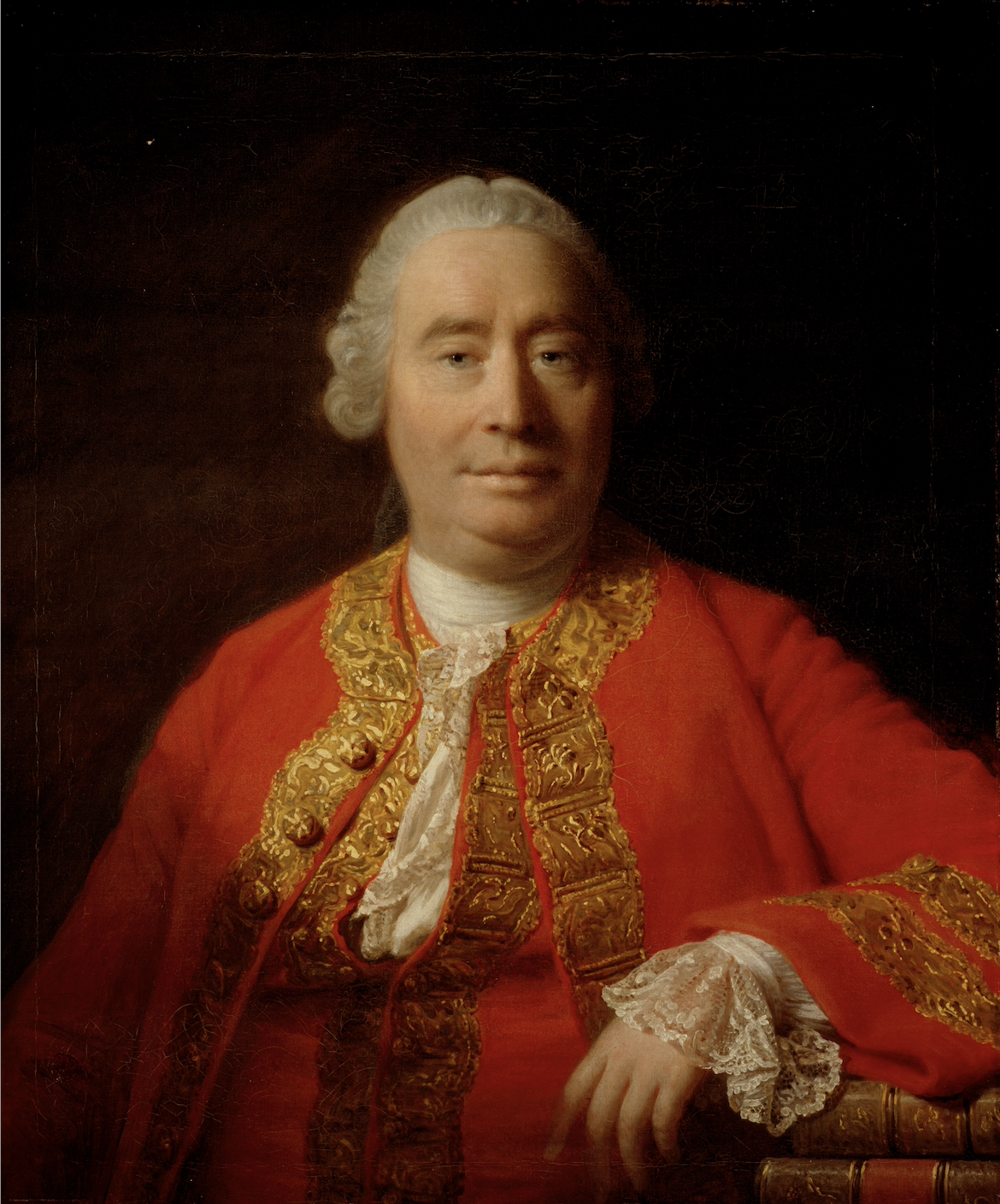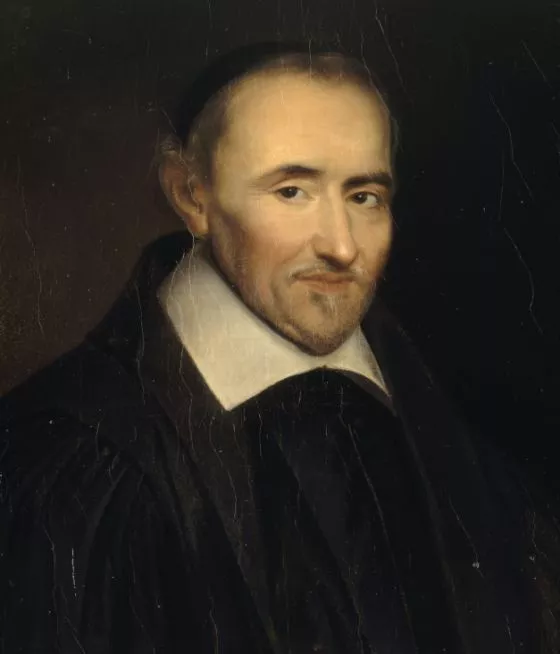
An interview with Aaron Zubia
JMC Resident Historian Elliott Drago sat down with JMC Miller Fellow Aaron Zubia to discuss his book, The Political Thought of David Hume: The Origins of Liberalism and the Political Imagination. Dr. Zubia is an Assistant Professor of Humanities at the University of Florida’s Hamilton Center.
The production of wise government
ED: Why did you become a political scientist?
AZ: As an undergraduate, I majored in business at the University of Texas at El Paso. While there, my attention started to shift to bigger questions, such as “what is the good life?” and “what is truth?” Instead of pursuing further studies in business, I decided to go to seminary after graduation. While at Princeton Seminary, I became increasingly interested in the study of politics. I think Aristotle’s idea that politics is the architectonic art helps explain the different stages of my intellectual journey. What is greater than seeking the nature of the good life for one person? I’d say that seeking the good life for many, cooperating within a political regime, is greater. Politics is an architectonic art because it integrates the pursuit of private goods, public goods, and the highest good. I wanted to learn about that integration. That’s why I became a political theorist.

ED: What led you to write The Political Thought of David Hume: The Origins of Liberalism and the Political Imagination?
AZ: First, I had been dissatisfied with the idea that liberalism was in some way a value neutral or impartial way to approach politics in a pluralistic environment. That seemed wrong to me.
Second, I noticed that in the eighteenth century, as liberal political thought developed, philosophers often drew from classical idioms, whether Epicurean or Stoic. In the classical world in which these ancient philosophies formed, philosophy was presented as a way of life. I think we tend to underestimate how liberalism itself is a way of life.
Third, I think Hume provides the most robust philosophical basis for the liberal way of life. Ultimately, then, I argue that Humean liberalism, with its Epicurean elements, exposes the philosophical starting points – that we often forget about, but that we nevertheless cannot avoid – when we adopt a liberal outlook on moral and political life.
ED: Why do we need to read your book?
AZ: Hume created a liberal moral and political philosophy that took for granted the ways that Christianity had shaped the culture in which he wrote. His despiritualized philosophy sought to expunge all transcendence from daily life, to focus people’s minds on politeness, commerce, and material progress, instead. In many ways, Humean liberalism – which is foundational to today’s Left and Right – runs on the fumes of Christendom. This is why, in our post-Christian age, liberalism is in crisis. My book provides one explanation for this crisis and provides insight into possible ways forward.
Liberalism is not “strictly political.” There is more to it.
ED: Share a moment (or two) from David Hume’s life that best exemplifies his political thought.
AZ: Many scholars today focus on Hume’s philosophical works, most notably his Treatise of Human Nature (1739-40). But in his day, he was famous as an essayist and historian. His six-volume History of England (1754-1762) was written – as one person quipped – the way witches say their prayers: backwards! In the first two volumes, which contained the history of the Stuarts, Hume praised the Whigs for their defense of liberty. But in subsequent edits – Hume revised his works until his death – he made nearly every one in favor of the Tories, the party of authority.

This explains two things: first, he was a meticulous writer. Every word mattered and he wanted each word to be right. As a result, he regularly revised his work. Second, he did not want to appear to be subservient to any one party, or faction, either the Whigs, the party of liberty, or the Tories, the party of authority. He wrote as a philosopher, above party bickering. Toward the end of his life, he emphasized that while liberty is the perfection of civil society, authority is necessary to its existence. This is his effort to strike a balance between the two competing party principles.
ED: How can studying Hume help us lower the temperature of political discourse?
AZ: Hume’s Dialogues Concerning Natural Religion (1779) in some ways exemplifies how a group of individuals can debate about life’s most delicate and fraught questions, in this case, the existence and nature of the deity. In the text, a skeptic, an empiricist, and a mystic/rationalist engage in debate and remain friends despite arriving at different conclusions. In a letter to a friend, Hume had wished that, as in the ancient world, Skeptics, Stoics, and Epicureans could all gather together peacefully and debate about philosophical topics. Coincidentally, in that list of philosophical schools, the Platonist is missing.
Similarly, in the Dialogues Concerning Natural Religion, the mystic/rationalist, who is really a kind of neo-Platonist, leaves the conversation, because he does not speak the same kind of skeptical, empirical language of the others. Hume wanted to promote polite dialogue in public life, but to do so he thought the language of faith and transcendence (the language of the contemplative Platonist) had to be either minimized or sidelined.
To turn down the heat of political discourse, must we ignore or privatize questions of higher purpose and meaning? Is it either possible or desirable to do so?
AZ: Hume had answers to these questions, suitable to his own time. We need to answer these questions in a way that is suitable to our time.
ED: Which American Founder got along best with David Hume, and why?
AZ: This is a great question! The American Founder who did get along best with David Hume was Benjamin Franklin. They exchanged some letters, and Franklin stayed with Hume during his trip to Edinburgh in 1771. They were both jovial and witty. They enjoyed good meals, good company, and good conversation. And they both argued that utility was one of the central foundations of virtue.
Rare books, underappreciated authors
ED: Can you identify your favorite primary source text that you encountered while researching your book?
AZ: This is such a difficult question to answer! I think immediately about two books I read in rare book rooms at Columbia University and Union Seminary: Pierre Bayle’s Dictionary, Historical and Critical (1734-39) and Pierre Gassendi’s Three Discourses of Happiness, Virtue, and Liberty (1699). These are two underappreciated French authors. I do remember, though, that the Gassendi book was very old. It was falling apart. Sadly, I decided to read the electronic version. I just couldn’t let that book deteriorate anymore due to my handling of it.
ED: What does your book’s subject matter reveal about America’s founding principles and history?
AZ: Hume’s social theory, I argue, begins with the critique of religion. Hume tried to sever the connections between the human person and God, between morals and religion. None of the American founders—not even the radical Thomas Paine—went this far.

I learned that Americans appreciated Hume’s political philosophy. He was, after all, an adept political analyst.
AZ: James Madison, for example, learned from Hume how best to mitigate the effects of faction.
Still, the Americans, by and large, rejected Hume’s positions on religion and morals. John Witherspoon, the sixth president of the College of New Jersey (now Princeton) who taught Madison, presented Hume as an infidel and a skeptic. He read Hume’s political analysis and learned from it. But he knew that his approach to religion and morals would not be able to nourish and sustain the citizens of a self-governing republic oriented toward virtue. As Founders such as George Washington and John Adams knew, sound political institutions are great. But something more – namely religion and morals – is needed to sustain them.
ED: What is your next project?
AZ: Witherspoon, Madison’s teacher at Princeton, adhered to the Common Sense philosophy articulated by the Scottish philosopher Thomas Reid. Reid created this philosophy in direct response to Hume’s skepticism. This Common Sense philosophy was incorporated into college curricula across the United States. In my next book, I will explain how this Common Sense philosophy – a reaction to Hume’s skepticism – served as a foundation for the American project of self-governance.
ED: What’s one thing you wish everyone knew about the American political tradition?
AZ: The framers of our Constitution did a great job placing limits on political power, through the separation of powers and checks and balances, to prevent tyranny and oppression. But preventing the abuse of power is only one side of the political coin. The other side is selecting wise leaders to deliberate on and further the common good. Too often, I think, we are excessively fearful of the use of political power. Madison explains in The Federalist, however, that our principal aim is the production of wise government that accords with reason and truth.
Elliott Drago serves as the JMC’s Resident Historian and Editorial Manager. He is a historian of American history and the author of Street Diplomacy: The Politics of Slavery and Freedom in Philadelphia, 1820-1850 (Johns-Hopkins University Press, 2022).
